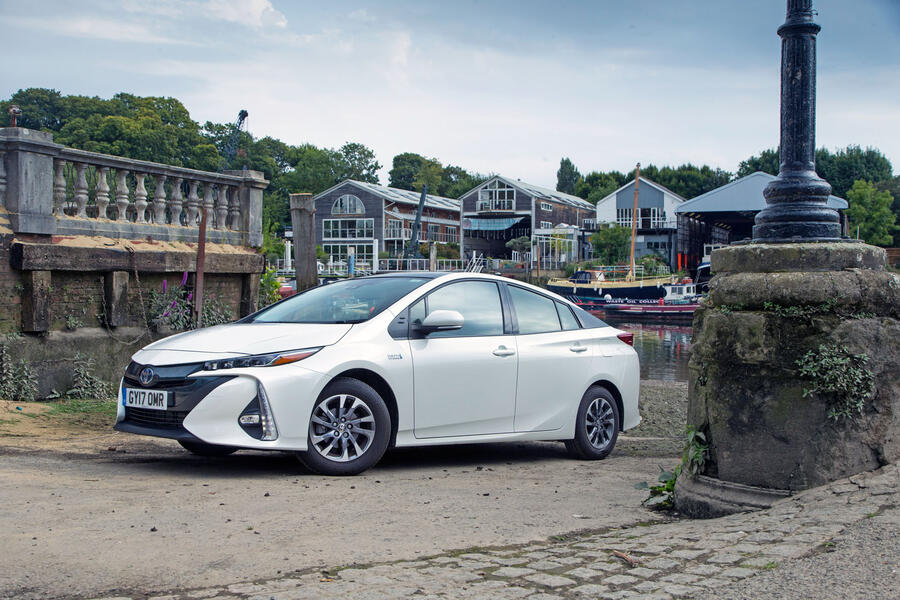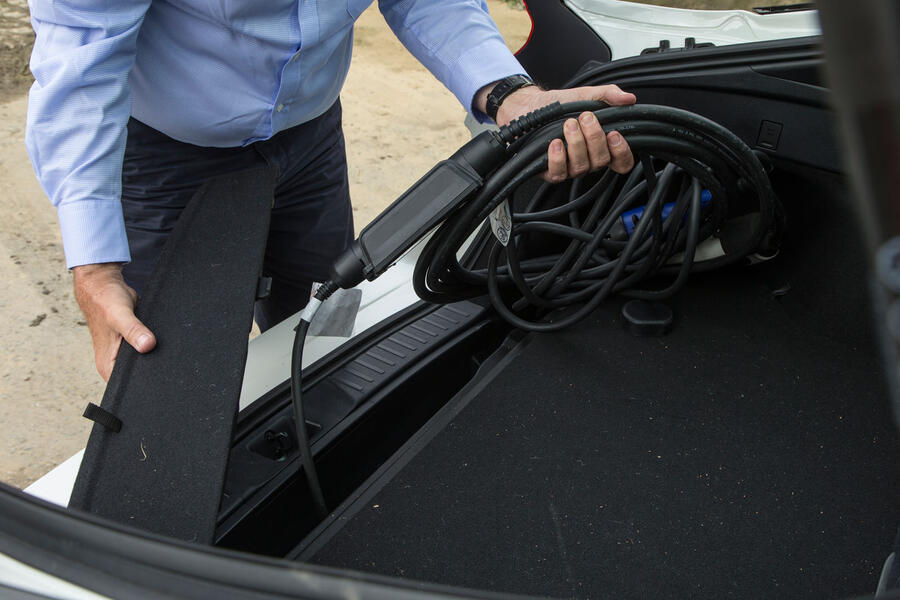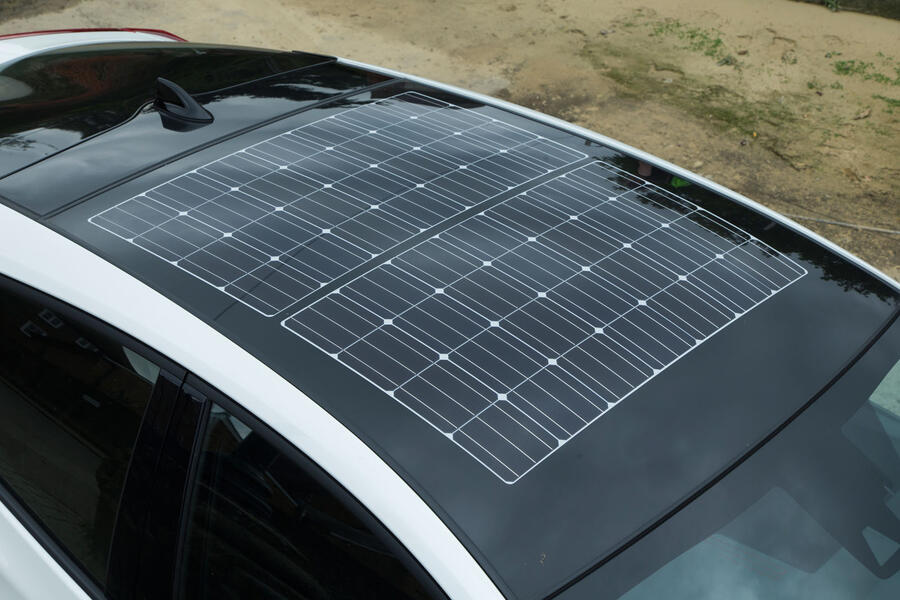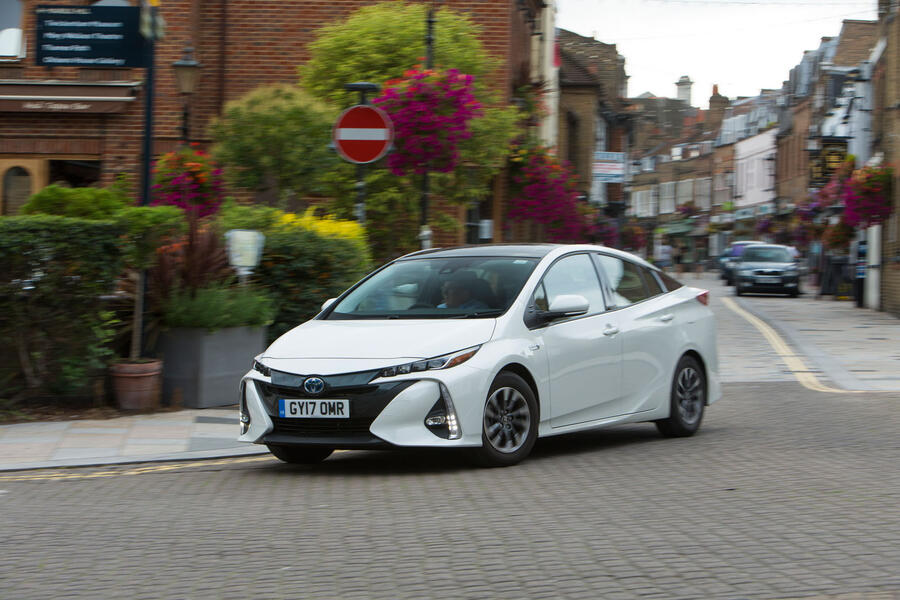Why we're running it: Is it a logical next step towards full electrification or an expensive distraction? Few cars intrigue more than the Toyota Prius PHEV

Life with a Toyota Prius Plug-in: Month 1
Getting in a tangle with Prius PHEV's cables – 04 October 2017
For a car that is so logically thought out in nearly every other way, the Prius's cable storage arrangements are annoyingly hard to use.
The compartment provided is too small, which means you simply resort to coiling the cables and chucking them in the boot as neatly as you can, compromising the shallow space even more than it already is.
Mileage: 3105

Welcoming the Prius Plug-in to our fleet – 06 September 2017
Funny how friends, usually those who don't care much about cars, get straight to the heart of car matters.
"This thing's all about fuel economy, isn't it?" said someone who's never bought a decent car in his life, on first clapping eyes on my Toyota Prius PHEV.
I'd not have put it so baldly. To me, the plug-in Prius is a bundle of intriguing new technology. It is built on Toyota's bold, better-packaged TGNA architecture, has its electric-only top speed lifted from 53mph to 84mph, boasts a remarkably low aero coefficient of 0.25 and packs 50 percent more battery power, which it can replenish nearly twice as fast.
Its 97bhp Atkinson-cycle 1.8-litre four-pot petrol engine reaches 40 percent efficiency (30-35 percent is usual) and there's even a ventilation gizmo that knows when there's only one occupant and avoids wasting energy cooling the rest of the cabin.
Yet the plain truth is that when my friend spoke, I'd been boasting for five minutes solid about how the new Prius's trip computer was showing 100mpg for 1200 miles, even though half the driving had been on longish motorway journeys. Economy is indeed the Toyota PHEV's purpose and party trick.
I'm not sure what we wrote about this car a year ago is quite what we'd write now.
In recent months, diesels have started looking less enticing whereas plug-in hybrids (if you interpret the government's plans correctly) have been green-lighted until 2050. It's an important signal. These are cars we'd better get used to.

Our new Prius PHEV Business Edition relates closely in looks and function to a standard non-plug Prius.
It has the same reasonably spacious four-seat cabin trimmed in shiny, black, durability-conscious materials; same centrally located instrument pack full of fascinating functions and efficiency info; and much the same styling (apart from 11cm of extra body length to accommodate the battery under the boot floor) and a swoopily styled carbonfibre tailgate that helps reclaim some of the battery's weight.
There's quite a story around that new battery. At 8.8kWh, it has twice the capacity of the previous unit, increasing electric-only range from 15 to more than 30 miles. Despite that, it charges nearly twice as quickly, yet it's only 50 percent heavier (at 120kg) and 66 percent bulkier than its predecessor. The bad news is that the boot is now 16cm shallower than a standard Prius's, so carrying holiday luggage is now this family car's most serious challenge.
At £33,195, our Prius Business Edition Plus costs £7200 more than a similar-spec non-PHEV Prius.
However, for that difference, you get a roof-mounted solar panel (which contributes two to three miles' city driving a day in full sun, or more than 400 miles in a year) plus the 30-mile all-electric capability. There's an extra filler flap at the driver's side for the charging cable, plus all the gadgetry you need for a full charge from a Type 2 plug in two hours.
When you start driving, the first things you notice are silence, smoothness, easy step-off and the fact that this is no performance car. You can choose from four powertrain modes (HV hybrid, EV only, EV City and Battery Charge) that govern how the car's two electric motors and petrol engine work together.
With everything going as hard as systems will allow, you get 120bhp to work with. The performance figures are modest (101mph flat out, 11.1sec 0-62mph) but are kept respectable by a well-contained kerb weight of 1550kg, and the innate low-end response of the electric motors allows you a quicker step-off in roundabouts than the bald power figure leads you to expect.
What I've learned from 1200 miles' use is that how individual drivers cope with the Prius PHEV depends very much on the use the car is put to.

Station-and-school users may rarely need anything but electric power. But if, like me, you do 500-plus miles a week, about 100 miles of it at slow speeds in the city, charging the car as often as possible, your bottom-line petrol economy will hit the high 90s and sometimes reach three figures. You'll discover that 70-80mph is the viable cruising speed and that, with reasonable care, you can get an impressive 65-75mpg even without electric assistance. So yes, it's all about economy.
However, the chassis ability is a surprise. The all-independent suspension (struts in front, double wishbones behind) has relaxed spring rates and the car rolls on 15in wheels with squishy sidewalls so the low-speed ride is absorbent. There's a bit of a tendency to bounce at middle-range speeds, but the car is quiet and comfortable over suburban bumps.
Which makes the steering and grip a major surprise. The car corners neatly, grips well, doesn't roll much and has quick, uncorrupted steering.
It's never going threaten the GTIs, but it grows increasingly enjoyable and accurate to drive as you explore what it can do. The underbits may be exotic but the Prius PHEV is fitting my average-busy business life very well.
Second opinion
For many, the Prius's Achilles heel may be the asking price, but if the maths do work (and for some they will), then the car itself is supreme: economical, refined, spacious and more. It is yet another example of why there is no reason to fear the onset of electrification
Jim Holder

Toyota Prius Plug-in Business Edition Plus specification
Specs: Price New £33,195; Price as tested £33,990; Options Pearlescent paint (£795)
Test Data: Engine 1798cc, petrol, plus dual-motor hybrid assist; Power 120bhp; Torque 105lb ft; Top speed 101mph; 0-62mph 11.1sec; Claimed fuel economy 283mpg; Test fuel economy 96mpg; CO2 22g/km; Faults None; Expenses None

Back to the top